 (November 2009) By now SF mood-man Brock Van Wey will be familiar to many for his prodigious output as bvdub. At the deeper end of deep techno or the ambient end of ambient dub rather than genuine dub-techno, his releases on labels like Styrax, Millions Of Moments, Meanwhile, Quantec‘s Shoreless, and his own Quietus put him the vanguard of the resurgence in all things at the crossover between ambient/dub/techno. White Clouds Drift On and On is the sound of Van Wey, partially reinvented, launching out into the big fluffy clouds he’d alluded to in previous work over the course of a whole disc, and leaving his clodhopping beats in their box.
(November 2009) By now SF mood-man Brock Van Wey will be familiar to many for his prodigious output as bvdub. At the deeper end of deep techno or the ambient end of ambient dub rather than genuine dub-techno, his releases on labels like Styrax, Millions Of Moments, Meanwhile, Quantec‘s Shoreless, and his own Quietus put him the vanguard of the resurgence in all things at the crossover between ambient/dub/techno. White Clouds Drift On and On is the sound of Van Wey, partially reinvented, launching out into the big fluffy clouds he’d alluded to in previous work over the course of a whole disc, and leaving his clodhopping beats in their box.
Late to the review party, a certain hyperbole hangs around these drifty clouds. Names like Roach and Roedelius, Cage and Eno, Reich and Glass, no less, as well as Gas and Basic Channel, have been invoked in relation to this sprawling work. Some may recall the coining of the term Mope House circa 2003 for a certain strain of melancholic dance music. This is crying out to be dubbed Mope Ambient. The album is, we learn from one admirer, “emotional and unafraid of seeming too sentimental or pretentious to those unwilling to take it on its own terms.” Now, pretentiousness is not the problem here so much as sentimentalism – something that noone need take on anyone’s terms. Those characterising this as “his most emotional music to date” omit to mention how mawkish the prevailing emotion is. Titles may evoke regret, loss and isolation, but the seething soothing mix of chords, voices and static rapidly becomes more anodyne than effecting, as the ear risks repetitive strain injury. “A Chance to Start Over” may well come on like Gas-infused Eluvium, and the opening “Too Little Too Late” like a liquified form of The Field, but what is one person’s “serenely meditative collection of droning ambience” is another man’s pabulum.
Yes, elsewhere White Clouds… has been frothed over in fulsome, even fawning terms, but the basis of White Clouds…, its a fabric of broad sweeping pads – all twee and poignant major and minor 7ths, especially when combined with pseudo-hymnal incantatory looped vocals results in a New Age-tainted version of something like Ambient with the looping sensibility of a techno approach; the problem being that it leaves out some of the more interestingly ambiguous aspects of those genres in favour of a kind of insipid crowd-pleasing show of boo-hoo quietude. Stephen Hitchell, the half of echospace that is not Rod Modell, also contributes a full disc of interpretations that might pacify those dub techno fans lamenting bvdub’s passage to the lite side. But those looking for echospace excitement should look elsewhere, for the Intrusion “Shapes” are generally slow, plodding explorations of, y’know, those ‘deep’ atmospheres. On the likes of “A Gentle Hand To Hold” wilting chord blooms get an inert kick drum, a tom ot two, and some hats to flower them up, as Intrusion prescribes a wearier version of the anaesthetically dreamy vibe of his own releases. If the foregoing seems like mean-spirited bashing, the intention is rather to provide an antidote to a prevailing frothing reponse to a lightweight work lent undeservingly heavyweight clothing; this is not to dismiss BVW’s work out of hand, but rather to warn that if anyone finds those pandering emotional signifiers such as “…a sonic collage filled with heartbreak, love and happiness…” a come-on, you may end up finding it all a big drooping tease. Clearly “intensely personal”, and not to deny it’s deeply felt, but, in current critical Zeitgeist pukka: I’m not feeling it.
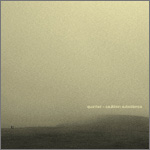
Another prolific player around these parts is Berliner Sven Schienhammer, who has just arrived at 2nd album stage, though, like his partner-in-crime above, the quantity of 12″s and eps piled up over the last couple of years is something to behold – though relenting recently. As Quantec, SS has always pursued a more obviously dub-techno sound than BVW, unashamedly referencing the sounds of Basic Channel/Maurizio and DeepChord across releases on, yep – Styrax, Meanwhile, Shoreless et al. (see above). Cauldron Subsidence is, apparently, a mixture of older tracks and newer works, and is billed as containing many of the artist’s personal favourite tracks, and “not really the typical Quantec sound…”, even “absolutely different to his last album on Echocord” (Unusual Signals). Frankly, its absolute difference from the previous album is not what your reviewer would pick out to characterise it. In fact, the elements are very much the same as before, albeit with a few more stirred in, and more of a propulsive, even dancefloor, leaning; plus the presence of (yikes!) vocal snatches (not to worry, they’re sparing, sort of subliminal cool catchphrase insertions – not exactly what the doctor would have ordered, but not too queasy). “Absolute Level” starts out like it’s heading elsewhere in a Detroit/Berlin hybrid vehicle; beats sneak into the arena with rude mechanical doof-ism repressed in favour of more fractured yet still insistent beats. But eventually the trademark brooding Berlin-dub chords slide in like caerulean tides, and 4 is finally allowed access to its beloved floor partner, 4. “Deep Rooted” slinks in clothed in 90s house threads, not so much an evil twin as a meaner cousin of Chez Damier, before mixing it up with the Maurizio medicine. A few bits of diversionary percussion here and there give a little variation, as on “Profound Experiences,” whose congas a la DeepChord get us motoring to the city before throwing in a sneaky snare to halve the BPMs arrestingly. “Fall Into Oblivion” reminds how well the formula developed on Unusual Signals works, but formula it nevertheless is. And some of the more interesting tracks are those that depart: for example, “Satisfied” is a work of more subtlety – a twilight affair of small yet resonant gestures, while “Magic Potion” works in a broken beat shimmy not far from the DJ-sprinkled house of Terre Thaemlitz. Certain variations, though, are less than successful – the dubstep derivation, “Transmitters,” and the R&S-que dub-cum-schaeffel hybrid of “Pandemonium” being cases in point. The concluding “Plateau” is finely judged, though – a final piece of pulsing ambience that could curdle the cream of Van Wey, the tech house below coming banging through from the basement. Overall, though, it must be said that Schienhammer injects more variety into his signature sound, and his sound stand more proud, less bleeding than Van Wey’s lovelorn lying, his midnight dub techno snapshots are prone to exposure by secondhand daylight.
- White Clouds… is out now on echospace [detroit]. [Listen & Purchase
]
- Cauldron Subsidence is out now on Echocord. [Listen & Purchase
]







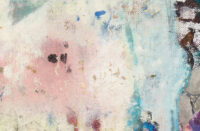
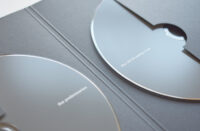
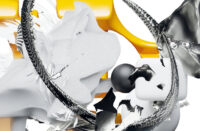

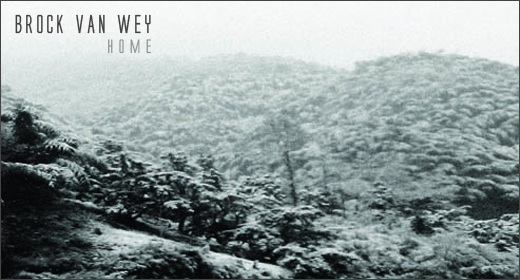
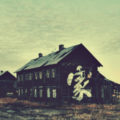




![Pole :: Tempus Remixes (Mute) — [concise]](https://igloomag.com/wp/wp-content/uploads/2025/04/pole-tempus-remixes_feat-75x75.jpg)






![Hasbeen :: Bunker Symphonies II (Clean Error) — [concise]](https://igloomag.com/wp/wp-content/uploads/2025/04/hasbeen-bunker-symphonies-ii_feat-75x75.jpg)

